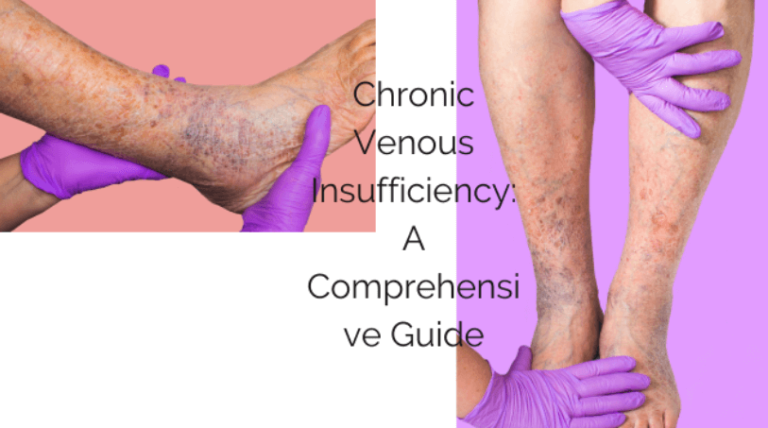Identifying Medical Negligence: Common Signs and Red Flags to Look Out For


When we entrust our well-being to medical professionals, we rightfully expect a standard of care that prioritizes our health and safety. However, instances of medical negligence can shatter this trust, leaving patients in dire situations.
In this article, we will explore the critical task of identifying medical negligence by examining common signs and red flags that warrant attention. Understanding these indicators is not only crucial for raising awareness but also for empowering individuals to seek justice if they’re injured by medical negligence. Navigating the complexities of medical malpractice requires a keen eye for these warning signs, and this exploration aims to shed light on the essential aspects of recognizing and addressing such instances.
Contents [show]
Delayed or Incorrect Diagnosis
In some cases, patients may experience significant delays in receiving a proper diagnosis, resulting in prolonged suffering and potential worsening of their condition. This can be attributed to various factors, such as inadequate medical knowledge, misinterpretation of symptoms, or failure to conduct necessary diagnostic tests.
Similarly, an incorrect diagnosis can lead to inappropriate treatment plans, potentially causing harm or unnecessary procedures for the patient. Both delayed and incorrect diagnoses can be indicative of medical negligence, highlighting the importance of thorough evaluation and accurate assessment by healthcare professionals.
Failure to Follow-up on Tests
After conducting diagnostic tests, it is crucial for healthcare professionals to diligently review and analyze the results. Failure to do so can have serious consequences for patient care. Whether it is overlooking abnormal findings or neglecting to communicate results to the patient, the failure to follow-up on tests can result in delayed or missed diagnoses, leading to further harm or complications. In order to ensure patient safety and quality care, healthcare providers must prioritize timely and thorough follow-up on diagnostic tests, addressing any abnormalities or concerns promptly and effectively.
Surgical Errors or Complications
Surgical errors or complications can be devastating for patients and are clear indicators of potential medical negligence. These errors can encompass a wide range of issues, including wrong-site surgery, incorrect incisions, organ damage, infection, or anesthesia-related problems. Such errors can have serious consequences for patients, leading to prolonged recovery times, additional surgeries, or even permanent disability.
It is essential that healthcare professionals adhere to strict protocols and guidelines to minimize the risk of surgical errors and complications. Proper pre-operative planning, meticulous surgical technique, thorough post-operative monitoring, and effective communication among the surgical team are critical in ensuring patient safety and avoiding these unfortunate incidents. Any lapse in these areas can be a red flag indicating possible medical negligence, warranting further investigation and potential legal action to protect the rights and well-being of the affected individuals.
Inadequate or Improper Treatment
Inadequate or improper treatment is another common sign of potential medical negligence that patients should be aware of. This refers to situations where healthcare providers fail to provide the appropriate level of care or make errors in their treatment approaches. This can include misdiagnosis or delayed diagnosis, prescribing the wrong medication or dosage, improper administration of treatments or therapies, or neglecting to provide necessary follow-up care.
Inadequate or improper treatment can have serious consequences for patients, leading to worsened health conditions, prolonged suffering, or even irreversible harm. It is crucial for healthcare professionals to stay up-to-date with best practices, follow evidence-based guidelines, and provide individualized care to ensure patient safety and well-being.
Medication Errors or Interactions
Another area of concern when it comes to identifying medical negligence is medication errors or interactions. These errors can occur at various points in the medication management process, including prescribing, dispensing, administering, and monitoring.
Medication errors can range from prescribing the wrong medication or dosage to administering medications incorrectly or failing to recognize potential interactions between different medications. Such errors can have serious consequences for patients, including adverse drug reactions, worsened health conditions, or even life-threatening situations.
It is essential for healthcare professionals to have robust systems in place to ensure accurate prescribing and administration of medications, as well as thorough monitoring to identify and prevent potential drug interactions. Patients should be proactive in understanding their medications, including any potential side effects or interactions, and should always communicate any concerns or questions to their healthcare providers to minimize the risk of medication errors or interactions.
Lack of Informed Consent
Informed consent is a fundamental ethical and legal principle that requires healthcare providers to inform patients about the risks, benefits, and alternatives of any proposed medical treatment or procedure. It is the responsibility of the healthcare professional to ensure that the patient understands the information provided and can make an informed decision based on their individual circumstances.
Failure to obtain informed consent can occur when healthcare providers withhold essential information, fail to adequately explain the potential risks and benefits, or coerce patients into a particular course of action. This lack of informed consent not only compromises patient autonomy but can also lead to harm, unnecessary suffering, and potential legal consequences. It is crucial for healthcare professionals to prioritize open and transparent communication with patients, ensuring that they are well-informed and actively involved in their own healthcare decisions.
Ignoring Patient Complaints or Concerns
Unfortunately, in some cases, healthcare providers may neglect or dismiss patient complaints, failing to give them due attention. This can have serious consequences, as patient complaints often serve as important indicators of underlying medical issues or potential instances of medical negligence. Ignoring patient complaints can lead to delayed or improper diagnosis, inadequate treatment, and prolonged suffering for patients.
It is imperative for healthcare professionals to actively listen to and address patient complaints promptly. Ensuring that their concerns are taken seriously and appropriate action is taken to provide the necessary care and support. By promptly addressing patient complaints, healthcare providers can enhance patient satisfaction, improve the quality of care, and mitigate the risks associated with medical negligence.
Poor Communication or Documentation
This can manifest in various ways, such as healthcare providers failing to adequately explain medical procedures or treatment options to patients, not seeking informed consent, or neglecting to update and maintain accurate medical records. Poor communication and documentation can lead to misunderstandings, improper treatment, and potential harm to patients. It is crucial for healthcare professionals to clearly communicate with patients. Ensuring that they understand their medical conditions, treatment plans, and any potential risks.
Additionally, accurate and comprehensive documentation is essential for continuity of care and to facilitate effective communication among healthcare providers. Identifying and addressing poor communication or documentation is vital in maintaining patient safety and preventing instances of medical negligence.
Conclusion
Identifying medical negligence is a crucial step in protecting oneself and loved ones from potential harm. By being aware of the common signs and red flags, individuals can take necessary precautions. And seek appropriate legal action if necessary. It is important to remember that medical professionals have a duty of care to their patients, and any negligence or malpractice should not be overlooked. By staying informed and advocating for proper medical care, we can work towards a safer and more accountable healthcare system.





